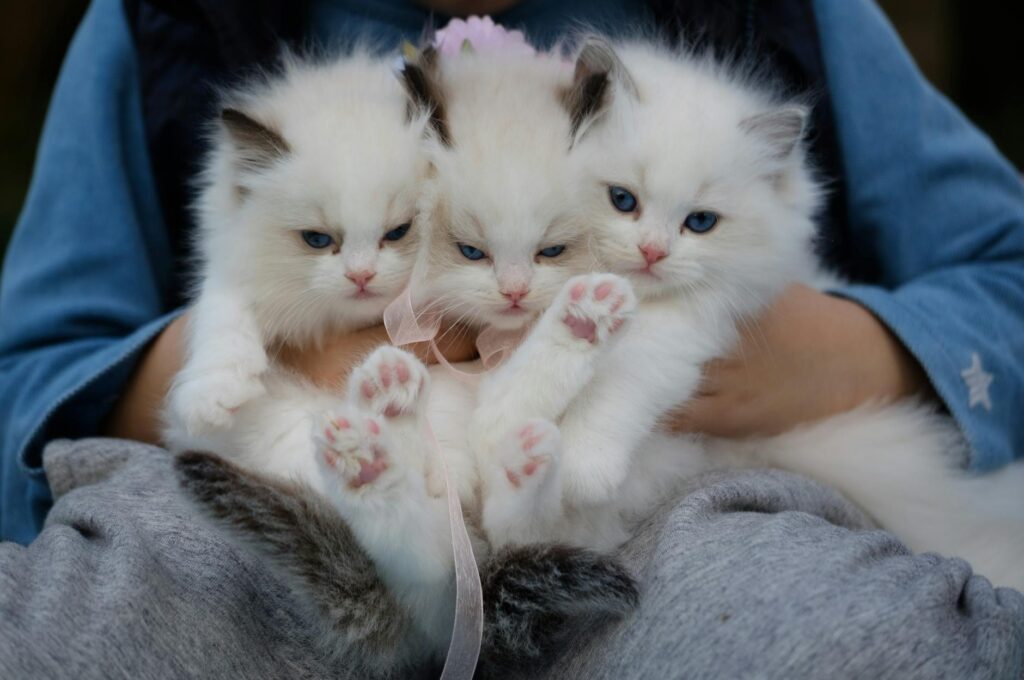Premature kittens require specialized care to survive and thrive. Their fragility demands a level of attention far exceeding that of healthy, full-term newborns. Understanding their unique needs is crucial for ensuring their survival and setting them on a path to a healthy adulthood. This guide will delve into the intricacies of premature kitten care, covering everything from feeding and temperature regulation to stimulation and health monitoring.
Understanding Premature Kittens
A kitten is considered premature if it’s born before the typical gestation period of 63 days. These tiny creatures often lack the vital developmental milestones necessary for independent survival. Their underdeveloped organ systems, particularly the respiratory and digestive systems, make them exceptionally vulnerable to complications. Weight is a key indicator; premature kittens usually weigh significantly less than their full-term counterparts. A veterinarian can accurately assess prematurity through physical examination and weigh the kitten(s). Early intervention is absolutely critical; the first few days are crucial for their survival rate.
Essential Kitten Care: The First 48 Hours
The first 48 hours are the most critical for a premature kitten’s survival. Immediate warmth is paramount. A premature kitten’s ability to regulate body temperature is severely compromised, leaving them highly susceptible to hypothermia. A warm, quiet environment is essential. A heating pad set on low (never directly under the kitten), a warm water bottle wrapped in a towel, or a heat lamp (carefully monitored to avoid overheating) can provide the vital warmth they need. Closely monitor their body temperature regularly using a rectal thermometer. Aim for between 95°F and 99°F (35°C and 37°C). Hypothermia can lead to organ failure and death.
Kitten Feeding: Replicating Mother Nature
Feeding a premature kitten requires patience, precision, and specialized tools. The most successful method often involves feeding them kitten formula using a bottle designed for tiny kittens with small nipples. These nipples mimic the mother’s teat and allow for controlled feeding. The formula must be specifically formulated for kittens; cow’s milk is inadequate and potentially harmful. Many formulas mimic the composition of queen’s milk and provide the necessary nutrients for optimal growth. Start by offering small amounts frequently; avoid overwhelming the kitten’s still-developing digestive system. A veterinarian or experienced rescue organization can guide you in the frequency and amount per feeding.
Stimulating Kittens: Mimicking Maternal Care
Premature kittens lack the natural stimulation provided by their mother. This includes the licking of the mother cat which encourages urination and defecation. You’ll need to gently stimulate these processes. Use a warm, damp cotton ball to gently stroke their abdomen and genital area after each feeding. This mimics the mother’s cleaning and helps the kitten to eliminate waste effectively. Insufficient elimination can cause serious complications.
Monitoring Kitten Temperature: A Continuous Process
Maintaining the correct temperature is a continuous process. Constant vigilance is necessary to prevent hypothermia or hyperthermia. Regularly check their body temperature, and adjust the heating source accordingly. Too much heat can be just as dangerous as too little. Signs of hypothermia include lethargy, weak meows, and decreased reflexes. Signs of hyperthermia include panting, rapid breathing, and dehydration. A thermometer is an invaluable tool; keep one handy and know how to read it correctly.
Kitten Health: Addressing Potential Complications
Premature kittens are prone to various health complications. Infections, dehydration, and respiratory issues are common. Regular veterinary checkups are essential to monitor their progress and address any arising problems. A veterinarian can perform necessary tests, provide appropriate medications, and offer expert advice on their care. Early detection of infections or other complications is crucial for improving their chances of survival. Weight gain is a fundamental metric of their health. Careful monitoring of their weight will indicate whether they are receiving adequate nutrition. It is important to keep track of kitten weight, temperature and overall health.
Premature Kitten Survival: A Collaborative Effort
The survival of a premature kitten depends on a proactive, informed, and often tireless approach to kitten care. Their small size, underdeveloped systems, and fragile state demand extraordinary attention to detail and careful management. The process is demanding, requiring dedication, understanding, and assistance from veterinary professionals. Early veterinary intervention and ongoing monitoring are vital to ensure the kitten’s chances of survival and a healthy future. With proper care and attention, it’s possible for even the tiniest of kittens to beat the odds and flourish. Don’t hesitate to seek veterinary advice; they are your best allies in this crucial undertaking. Early intervention and continued support can contribute significantly to the kitten’s survival and its overall well-being.

